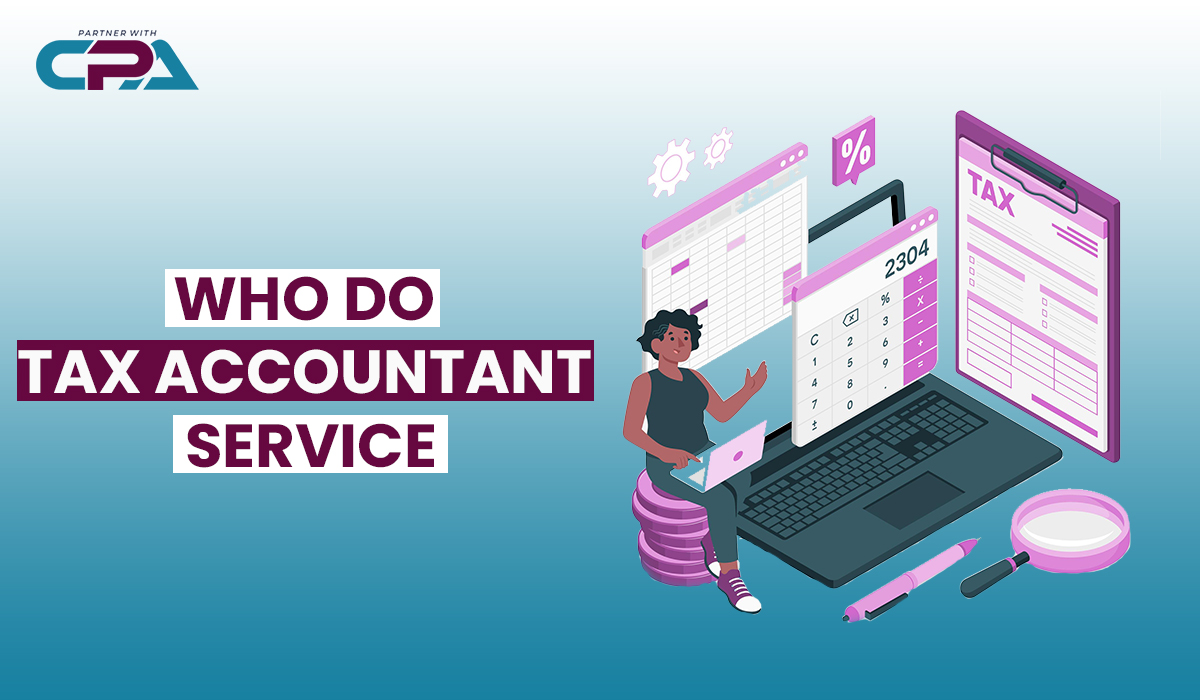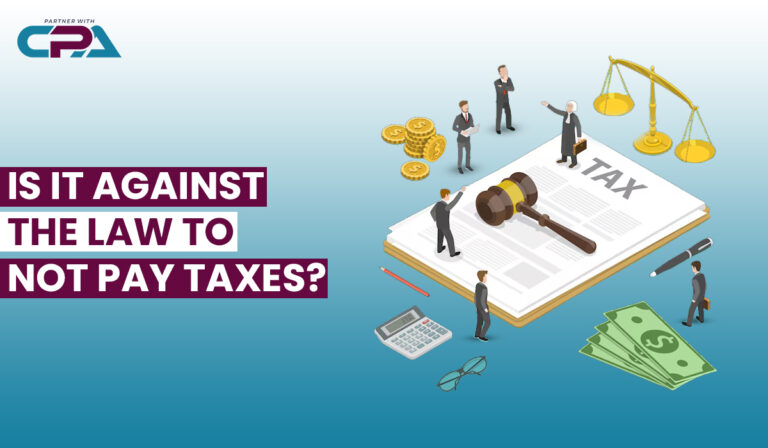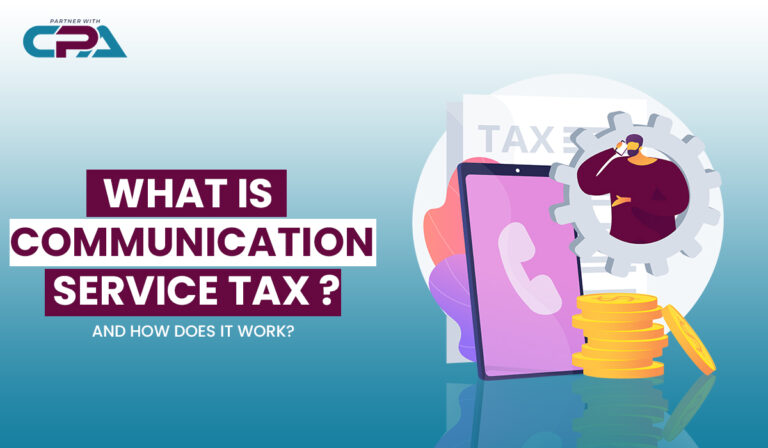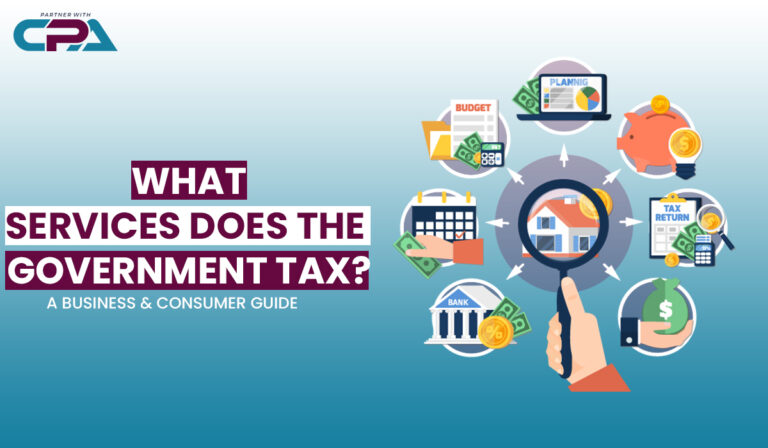Who Do Tax Accountant Service: Understanding Their Role and How They Can Help You

Taxes are an inevitable part of life, whether you’re an individual, a small business owner, or a corporation. But navigating tax laws, ensuring compliance, and maximizing deductions can be overwhelming. This is where tax accountants come into play. If you’re wondering who do tax accountant service and how they can benefit you, this article will provide a comprehensive guide.
We’ll cover the key responsibilities of tax accountants, the types of clients they serve, and why partnering with a professional can save you money, time, and stress.
What Does a Tax Accountant Do?
A tax accountant specializes in preparing, filing, and advising on tax-related matters. Their expertise helps clients minimize liabilities and ensure compliance with local, state, and federal tax laws. Their primary responsibilities include:
Tax Preparation and Filing:
- Preparing and filing accurate tax returns for individuals, businesses, corporations, and nonprofits.
- Ensuring proper documentation and adherence to federal, state, and local tax laws.
- Calculating taxable income, allowable deductions, and tax credits to optimize tax savings.
- Filing quarterly and annual tax returns to avoid penalties and interest.
- Staying updated with ever-changing tax regulations to prevent errors.
Tax Planning:
- Developing tax-efficient strategies to help individuals and businesses reduce liabilities.
- Advising on deductions, exemptions, and tax credits available for different financial scenarios.
- Assisting in estate planning to minimize inheritance taxes.
- Structuring business operations to maximize tax benefits.
- Providing financial projections to forecast tax obligations and ensure financial readiness.
IRS Representation:
- Acting as a representative for clients in the event of an audit.
- Negotiating settlements, penalties, and back taxes with the IRS.
- Assisting with IRS notices, disputes, and tax resolution services.
- Filing amendments or corrections to previously submitted tax returns.
- Providing guidance on IRS debt relief programs, including installment agreements and offers in compromise.
Compliance Assurance:
- Ensuring businesses comply with tax laws regarding payroll, sales tax, and corporate taxes.
- Conducting internal audits to verify compliance with government tax regulations.
- Implementing tax risk management strategies to prevent legal and financial repercussions.
- Helping organizations maintain accurate financial records and prepare for external audits.
- Assisting with international tax compliance for businesses with global operations.
Financial Consulting:
- Advising individuals on investment strategies with tax implications.
- Helping businesses with tax-efficient mergers, acquisitions, and restructuring.
- Providing guidance on retirement planning and tax-deferred investment accounts.
- Educating clients on tax policies that impact their financial decisions.
- Collaborating with financial advisors to create comprehensive tax-saving strategies.
Who Do Tax Accountant Service?
1. Individuals
Individuals with diverse financial situations seek tax accountant services for:
- Personal tax filing and returns.
- Tax deductions and credits optimization.
- Retirement and investment tax planning.
- IRS audit representation.
If you need professional help with your tax obligations, consider consulting experts at partnerwithcpa.com.
2. Small Businesses and Startups
Small business owners often struggle with bookkeeping and tax compliance. A tax accountant can assist with:
- Business tax preparation (Business Tax Preparation Services).
- Payroll tax processing.
- Sales tax compliance.
- Financial reporting and bookkeeping (Accounting & Bookkeeping Services).
- Business tax deductions and credits.
Additionally, startups can benefit from Startup Consulting Services to streamline financial operations.
3. Corporations and Large Businesses
Enterprises require tax accountants for more complex tax strategies, including:
- Corporate tax planning (Corporate Tax Advisory).
- International tax compliance.
- Mergers and acquisitions tax strategy.
- Internal audit and assurance (Internal Audit & Assurance).
4. Nonprofit Organizations
Nonprofits must adhere to specific tax regulations to maintain their tax-exempt status. Tax accountants help with:
- Filing Form 990 and related documents.
- Ensuring compliance with IRS nonprofit guidelines.
- Advising on charitable contributions and fundraising taxation.
5. Real Estate Investors
Property owners and real estate investors face unique tax challenges, such as:
- Depreciation deductions.
- 1031 exchanges and capital gains tax.
- Rental income tax planning.
- Property tax compliance.
6. Freelancers and Gig Workers
With the rise of the gig economy, independent contractors and freelancers face unique tax challenges that require professional assistance. Unlike traditional employees, gig workers are responsible for their own tax reporting, payments, and deductions, making tax planning essential for financial success. A tax accountant can provide specialized guidance in the following areas:
- Self-employment tax calculations: Independent contractors must pay self-employment tax, which covers Social Security and Medicare contributions. A tax accountant ensures accurate calculations, helping freelancers avoid underpayment penalties while maximizing deductions to reduce taxable income.
- Quarterly tax payments: Since taxes are not automatically withheld from freelance income, self-employed individuals must make estimated quarterly payments to the IRS. A tax accountant assists in determining the correct payment amounts, preventing unexpected tax liabilities at the end of the year.
- Business expense deductions: Gig workers can deduct various business expenses, such as home office costs, mileage, professional development, marketing, and equipment. A tax professional helps identify all eligible deductions and ensures compliance with IRS regulations.
- Retirement planning for self-employed individuals: Unlike employees with employer-sponsored 401(k) plans, freelancers must take proactive steps to secure their financial future. A tax accountant advises on tax-efficient retirement plans, such as SEP IRAs, Solo 401(k)s, and SIMPLE IRAs, helping independent workers maximize contributions while minimizing tax burdens.
- Record-keeping and financial organization: Keeping track of invoices, receipts, and expenses is crucial for accurate tax filing. A tax accountant can provide bookkeeping support, recommend financial tracking software, and ensure all records comply with tax regulations.
For self-employed individuals looking for expert bookkeeping solutions, check out Full-Charge Bookkeeping Services to streamline financial management and stay tax-compliant.
Benefits of Hiring a Tax Accountant
1. Maximizing Deductions and Credits
Tax accountants ensure you claim all eligible deductions, such as business expenses, medical costs, and education credits, reducing overall tax liability. They conduct thorough evaluations of financial records, identifying tax-saving opportunities that might otherwise be overlooked. For businesses, they analyze operational costs, depreciation, and industry-specific deductions to ensure maximum savings. Individuals can benefit from deductions on mortgage interest, student loans, charitable donations, and healthcare expenses. Additionally, tax accountants stay up-to-date with changing tax laws, ensuring that clients take full advantage of new tax credits and incentives each year.
2. Avoiding Costly Mistakes
Errors in tax filings can lead to penalties, audits, or legal issues. A professional ensures accuracy and compliance by meticulously reviewing all financial documents before submission. They identify discrepancies, correct errors, and ensure that all required forms are completed correctly. Tax accountants also help clients maintain organized records, reducing the risk of missing important tax deadlines. In the event of an IRS inquiry, they provide documentation and explanations to resolve issues efficiently, preventing costly penalties and interest charges.
3. Saving Time and Reducing Stress
Handling taxes alone is time-consuming and complex. A tax accountant lets you focus on running your business or managing personal finances without the stress of tax compliance. By outsourcing tax-related tasks, individuals and business owners can allocate their time and energy to growth initiatives, operations, or personal endeavors. Tax accountants use advanced software and automation tools to streamline tax filing, reducing the likelihood of errors and delays. They also provide proactive guidance throughout the year, so clients are well-prepared when tax season arrives.
4. Year-Round Tax Planning
Unlike seasonal tax preparers, professional accountants provide ongoing tax strategy support, helping you plan for future tax obligations and investment opportunities. They assess financial trends, evaluate potential tax liabilities, and create customized tax-saving plans for individuals and businesses. Business owners can benefit from quarterly financial reviews to adjust tax strategies based on revenue fluctuations. Individuals receive guidance on tax-efficient investments, retirement planning, and estate management. With year-round support, clients avoid last-minute surprises and gain confidence in their long-term financial strategies.
5. Representation During Audits
If the IRS audits you, having an accountant can provide crucial support and representation, ensuring you comply with regulations and resolve issues efficiently. Tax accountants gather and organize all necessary documentation, communicate with the IRS on behalf of their clients, and present a well-structured defense in case of disputes. They provide explanations for deductions, financial transactions, and tax filings, ensuring compliance with tax laws. Having a professional handle an audit significantly reduces stress and improves the likelihood of a favorable outcome. They also advise on best practices to prevent future audits and ensure ongoing tax compliance.
Choosing the Right Tax Accountant
When selecting a tax accountant, consider the following:
- Credentials: Ensure they are a Certified Public Accountant (CPA), Enrolled Agent (EA), or tax attorney. These professionals have undergone rigorous training, passed certification exams, and adhere to ethical standards set by governing bodies. Verifying their licenses and certifications through professional organizations ensures credibility.
- Experience: Look for professionals with expertise in your specific industry or tax situation. Tax regulations vary across different sectors, so hiring an accountant familiar with industry-specific deductions, compliance requirements, and financial challenges can lead to more effective tax strategies.
- Reputation: Research online reviews, ask for referrals from trusted colleagues or business partners, and check credentials through professional organizations such as the AICPA (American Institute of Certified Public Accountants) or the IRS directory of Enrolled Agents. A reputable accountant will have a track record of successful tax filings and satisfied clients.
- Service Offerings: Ensure the accountant provides services that align with your needs, whether it be personal tax preparation, business tax filing, IRS audit representation, or financial planning. Some firms specialize in niche services, such as corporate tax structuring, estate tax planning, or international tax compliance.
- Technology Use: Opt for a firm that utilizes modern accounting tools and cloud-based tax software. Automated tax solutions enhance accuracy, streamline processes, and provide real-time access to financial data. Accountants who integrate software like QuickBooks, Xero, or enterprise-level ERP systems (Software & ERP Implementation) can significantly improve tax efficiency and record-keeping.
- Communication and Availability: Your tax professional should be accessible year-round, not just during tax season. They should proactively communicate changes in tax laws, provide timely responses to financial inquiries, and offer strategic tax planning support throughout the year. A reliable accountant will act as a financial advisor, ensuring you make tax-efficient decisions well before the filing deadline.
Conclusion
Understanding who do tax accountant service is essential for making informed financial decisions. Whether you’re an individual, small business, or large corporation, tax accountants provide invaluable assistance in tax preparation, compliance, and planning.
If you’re looking for expert tax and financial services, explore PARTNER WITH CPA to find tailored solutions for your needs.
Take Action Today!
Don’t wait until tax season—partner with a trusted CPA now to ensure financial success. Get in touch with PartnerWithCPA.com to schedule a consultation!

I’m Qaisar Umar, a Digital Marketing Expert, Web Designer, and Growth Strategist with experience ranking 90+ brands and working with 200+ international clients. I’m SEMrush certified and trained by iSkills, specializing in SEO, web design, and growth strategies to help businesses scale online.
Passionate about technology and ranking tactics, I stay ahead of trends to drive real results. Whether it’s boosting visibility, improving engagement, or growing a brand, I focus on strategies that work.



